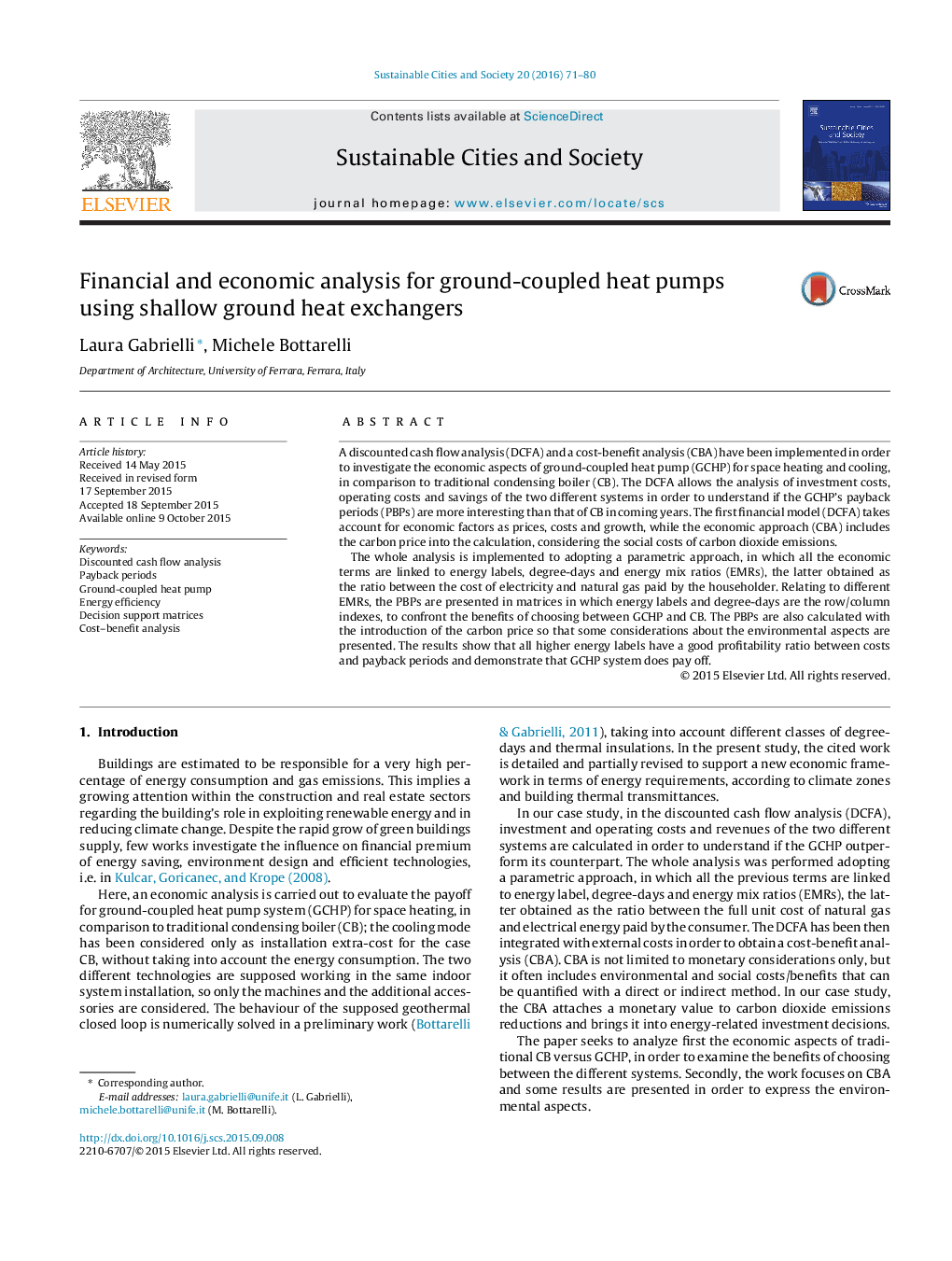| Article ID | Journal | Published Year | Pages | File Type |
|---|---|---|---|---|
| 308097 | Sustainable Cities and Society | 2016 | 10 Pages |
A discounted cash flow analysis (DCFA) and a cost-benefit analysis (CBA) have been implemented in order to investigate the economic aspects of ground-coupled heat pump (GCHP) for space heating and cooling, in comparison to traditional condensing boiler (CB). The DCFA allows the analysis of investment costs, operating costs and savings of the two different systems in order to understand if the GCHP's payback periods (PBPs) are more interesting than that of CB in coming years. The first financial model (DCFA) takes account for economic factors as prices, costs and growth, while the economic approach (CBA) includes the carbon price into the calculation, considering the social costs of carbon dioxide emissions.The whole analysis is implemented to adopting a parametric approach, in which all the economic terms are linked to energy labels, degree-days and energy mix ratios (EMRs), the latter obtained as the ratio between the cost of electricity and natural gas paid by the householder. Relating to different EMRs, the PBPs are presented in matrices in which energy labels and degree-days are the row/column indexes, to confront the benefits of choosing between GCHP and CB. The PBPs are also calculated with the introduction of the carbon price so that some considerations about the environmental aspects are presented. The results show that all higher energy labels have a good profitability ratio between costs and payback periods and demonstrate that GCHP system does pay off.
